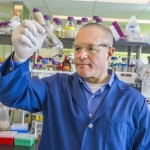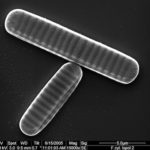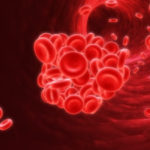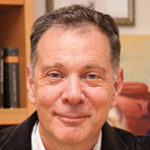In Nature, a team led by University of East Anglia scientists conducted a comparative genomic analysis involving three diatoms by tapping expertise from the DOE Joint Genome Institute (JGI), who conducted all sequencing and annotation. Read more at JGI News.
Keasling Featured in Create Magazine
 Jay Keasling, Associate Laboratory Director for Biosciences was featured in Create, Engineers Australia’s Magazine. In the article Keasling discusses how synthetic biology tools offer solutions to some of the major global challenges. Read more.
Jay Keasling, Associate Laboratory Director for Biosciences was featured in Create, Engineers Australia’s Magazine. In the article Keasling discusses how synthetic biology tools offer solutions to some of the major global challenges. Read more.
Industrial Biotechnology Leader Selected as New DOE JGI Director
After 9-month national search, Nigel Mouncey, currently Research and Development Director for Bioengineering and Bioprocessing at Dow AgroSciences LLC, has been selected as the Director of the U.S. Department of Energy Joint Genome Institute (DOE JGI), a DOE Office of Science User Facility. Mouncey will be the DOE JGI’s fourth Director in its 20-year history. He succeeds Eddy Rubin, who announced his retirement in March 2016 after a dozen years as Director, and DOE JGI Strategic Planning Deputy Axel Visel, who has served as Interim Director since then. Read more about Mouncey’s selection on the DOE JGI website.
Out for Blood: New Model Shows Promise for Personalized, Precision Transfusions for Trauma Patients
After trauma injury, some patients develop acute traumatic coagulopathy (ATC), a biological response with increased bleeding, morbidity and mortality. This condition is difficult to diagnose in real-time because relevant laboratory tests take hours and the coagulation mechanisms following injury are not well understood, creating further problems when patients are transfused with massive amounts of untargeted blood products. Mortality is 40 to 70% in the best trauma centers. Current models are unsuited for trauma coagulation or take days to run.
Amor Menezes and Adam Arkin of the Environmental Genomics & Systems Biology Division collaborated with clinicians to develop a simple, fast trauma coagulation model using control theory, published this week in Science Translational Medicine, which can personalize the treatment of severely injured patients with ATC from only laboratory measurements that take a few minutes. Using this model, the authors accurately predicted an hour-long laboratory test, calculated patient-specific transfusion requirements, and demonstrated in vitro that a driver of coagulation in these patients could be controlled as calculated. This ability to quickly predict and leverage accurate individualized information could be key to future treatment of patients with ATC.
Bioscientist Among Faculty Named 2016-2017 Bakar Fellows
Biosciences Area Faculty Scientist James Hurley (pictured), who will use insights from molecular structure to fight neurodegeneration, has been added to the ranks of the Bakar Fellows Program. This program supports UC Berkeley faculty working to apply scientific discoveries to real-world issues. Three materials scientists, Ali Javey, Jeffrey Long, and Jie Yao, were also recognized. Read more at Berkeley Research.
- « Previous Page
- 1
- …
- 165
- 166
- 167
- 168
- 169
- …
- 213
- Next Page »
Was this page useful?







